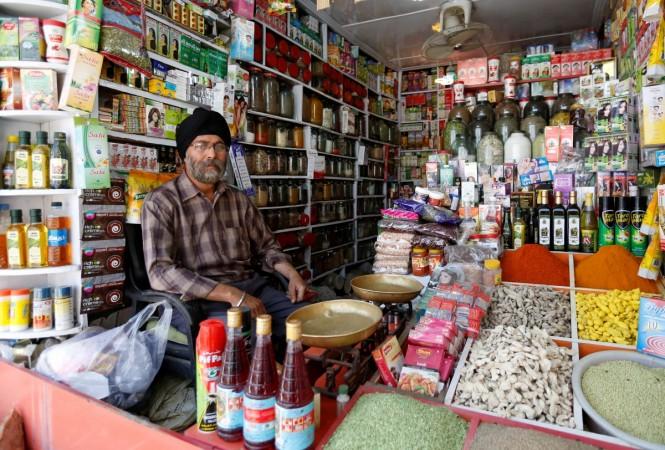
Jagtar Singh Laghmani, an Afghan Sikh, was going about his usual business in his traditional herb shop in downtown Kabul earlier this month when a man turned up, took out a knife and told him to convert to Islam or he would slit his throat. Onlookers and other shopkeepers saved his life.
"This is how we begin our day — with fear and isolation. If you are not a Muslim, you are not a human in their eyes... I don't know what to do or where to go," Laghmani was quoted by Reuters as saying.
According to Reuters, this is the latest attack on the decreasing numbers of Hindus and Sikhs living in Afghanistan. Few Hindu and Sikh families now reside in a country that once saw a thriving population of the minority community. Many families have moved out of their homes in Afghanistan due to rising Islamic insurgencies and discrimination.
Known for their medicinal herb shops today, the Hindu and Sikh communities have for centuries been known for their contribution to merchant trade and money lending in the war-torn country of Afghanistan.
They mainly reside in the eastern provinces of Nangarhar, Ghazni, and Kabul.
Several Hindu and Sikh families chose to flee Helmand because Taliban rebels demanded 200,000 afghanis a month from the community.
The country's Constitution, drawn up after the Taliban's ouster in 2001, guarantees minority communities the right to practise their religion freely. But according to Singh, the condition has become worse than it was during the Taliban. Hindus and Sikhs had to wear yellow patches to be publicly identified but were otherwise hardly bothered.
"The good old days have long gone when we were treated as Afghans, not as outsiders... Our lands have been taken by powerful figures in the government, especially by the warlords. We are facing threats, and this small community is getting smaller and smaller every day," Singh was quoted by Reuters as saying.
Muslims in the Qalacha area of Kabul are against the community's cremation rituals. "They throw stones and bricks at us, at the bodies of the dead, whenever there is a funeral," Singh was quoted by the agency as saying.
"When they burn the body the smell makes our family sick and we don't want this to happen here," Muslim resident Ahmad Timor told Reuters.
The Deputy Minister for Haj and Religious Affairs Dahi-ul Haq Abid begged to differ. "Their condition is not as bad as they claim. We have allocated them a place to burn their bodies because inside the city people complained about the smell, but they did not agree," he was quoted by the agency as saying.
Eight-year-old Jasmeet Singh stopped going to school because of what he called harassment on an everyday basis. "While I was at school, other students were making fun of me. They were removing my turban, hitting me and calling me Hindu and kaffir (infidel)," he told Reuters. Children of the community study either in private schools or in temples.
The community says they are treated as foreigners everywhere. "When we go to India, we are known as Afghans, but when we are here, we are seen as outsiders even if we are native Afghan... We are lost between both worlds," shopkeeper Baljit Singh was quoted by Reuters as saying.
Mass exodus of Hindu families due to discrimination and religious intolerance has also been reported from Pakistan. According to BBC, almost 1,200 people have migrated to India in the last five years.
One of the biggest problems they faced in Pakistan was being unable to provide education to their children. "Our children don't feel welcome in schools there. Muslims taunt us for being Hindu. Our girls are also sexually harassed," Bhagwan Das, one of the 71 people who fled Pakistan in Ovtober 2015, was quoted by the channel as saying.
The Indian government, in September 2015, had declared that migrants from Pakistan and Bangladesh would be allowed to live in the country on humanitarian grounds even without papers or on the expiry of their visas, according to the Press trust of India.

















